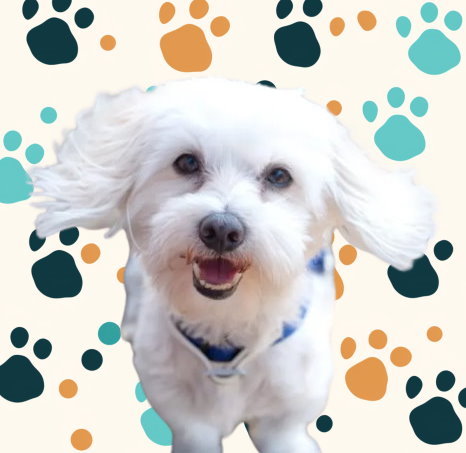Welcome to Dog Training Newbies !
Welcome to Dog Training Newbies !

Raising a Maltese puppy can be a delightful and rewarding experience. Known for their charming personality and beautiful white coats, Maltese dogs are affectionate companions. However, like all puppies, they require proper training and socialization to become well-behaved and confident adults. In this article, we will explore essential training and socialization tips to help you raise a happy and well-adjusted Maltese puppy.
START EARLY: THE IMPORTANCE OF EARLY TRAINING
Early training is crucial when raising a Maltese puppy. Begin training as soon as you bring your puppy home, focusing on basic commands such as "sit," "stay," and "come." Establishing a foundation of obedience early on will set the stage for more advanced training as your puppy grows. Use positive reinforcement, such as treats and praise, to reward desired behaviors. Be patient and consistent in your training efforts, and remember that short, frequent training sessions are most effective for puppies.
SOCIALIZATION: EXPOSING YOUR PUPPY TO NEW EXPERIENCES
Socialization is a vital aspect of raising a Maltese puppy. Introduce your puppy to different environments, people, animals, and sounds from an early age. This exposure helps them become well-adjusted and confident in various situations. Gradually introduce your puppy to new experiences, and observe their reactions. Encourage positive interactions with people and other animals, while providing a safe and controlled environment. Early and positive socialization will help prevent fearfulness or aggression as your puppy matures.
HOUSE TRAINING: ESTABLISHING GOOD HABITS
House training is an essential aspect of raising a Maltese puppy. Establish a consistent routine for bathroom breaks, and take your puppy outside regularly, especially after meals, naps, or playtime. Use positive reinforcement, such as treats or praise, to reward your puppy for eliminating in the appropriate spot. Be patient and consistent, as accidents are part of the learning process. Avoid punishment, as it can create fear or anxiety in your puppy. With time and consistency, your Maltese puppy will develop good bathroom habits.
LEASH TRAINING: TEACHING LOOSE LEASH WALKING
Leash training is an important skill for a Maltese puppy. Begin leash training early, using a lightweight harness or collar and a suitable leash. Start indoors or in a secure, enclosed area, allowing your puppy to become familiar with the sensation of wearing a leash. Encourage your puppy to walk on a loose leash by using treats and positive reinforcement. Gradually introduce distractions and practice walking in different environments to reinforce good leash manners.
CRATE TRAINING: CREATING A SAFE SPACE
Crate training can be beneficial for both you and your Maltese puppy. A crate provides a safe and comfortable space for your puppy when you are unable to supervise them. Introduce the crate gradually, making it inviting with soft bedding and toys. Use positive reinforcement to encourage your puppy to enter and stay in the crate. Avoid using the crate for punishment, as it should be associated with positive experiences. Crate training helps with house training, prevents destructive behavior, and provides a sense of security for your puppy.


CONSISTENCY AND PATIENCE: KEY TRAINING PRINCIPLES
Consistency and patience are essential when training a Maltese puppy. Establish clear rules and expectations from the beginning, ensuring that all family members follow them consistently. Use the same commands and rewards to avoid confusion. Remember that training takes time and repetition, so be patient and understand that progress may vary from puppy to puppy. Consistent and patient training builds a strong bond and helps your Maltese puppy develop good manners.
PROFESSIONAL TRAINING SUPPORT: SEEKING EXPERT GUIDANCE
Consider seeking professional training support when raising a Maltese puppy, especially if you encounter specific challenges or need guidance. Professional trainers have experience with small breeds and can provide valuable insights and techniques tailored to your puppy's needs. They can assist with obedience training, behavior modification, and addressing any specific issues that may arise during your puppy's development.
Raising a Maltese puppy requires early training and socialization to ensure they grow into well-behaved and confident dogs. Begin training early, focusing on basic commands and positive reinforcement. Socialize your puppy to different environments, people, and animals to foster confidence and prevent behavioral issues. Establish good house training habits, teach loose leash walking, and create a safe space with crate training. Practice consistency, patience, and seek professional guidance when needed. By following these tips, you can raise a well-adjusted and happy Maltese puppy that will bring joy and companionship to your life for years to come.